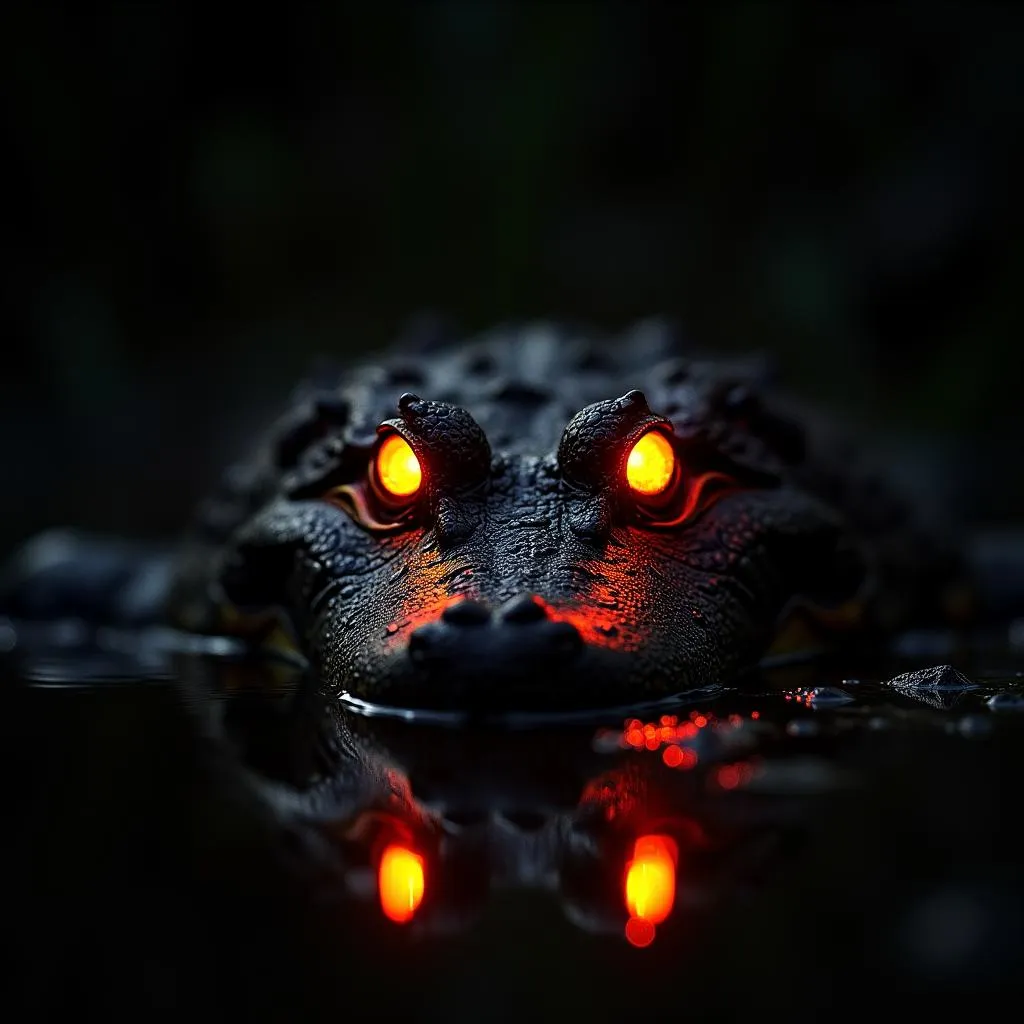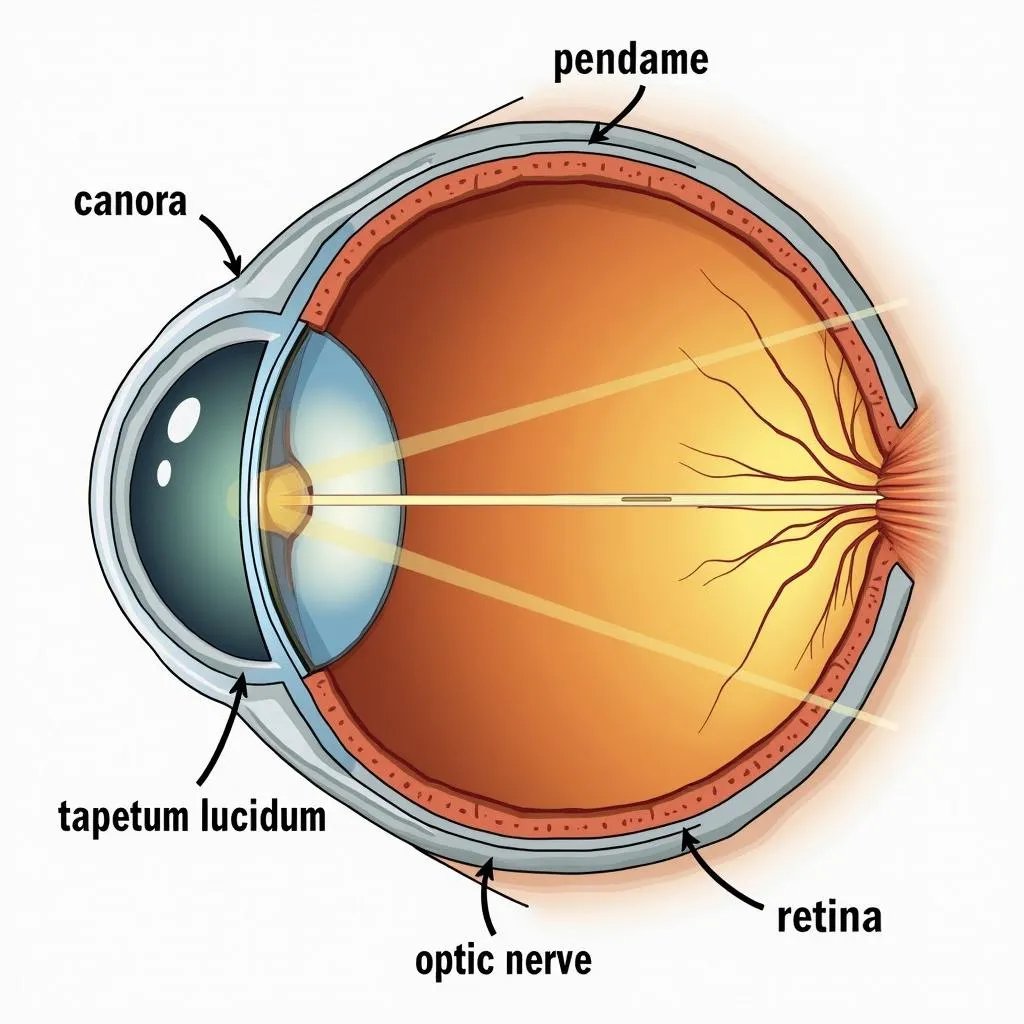You’re out on the swamp at night, the air thick with humidity and the chirping of insects. Suddenly, you see them – two glowing orbs in the darkness. Are those the eyes of an alligator, shining like beacons in the night?
Contrary to popular belief, alligator eyes don’t actually glow red in the dark. What you’re seeing is the reflection of light from a source like a flashlight or the moon. This reflection is due to a special layer of cells in their eyes called the tapetum lucidum, which acts like a mirror, reflecting light back through the retina and enhancing their night vision.
Unmasking the Myth: Why Alligator Eyes Appear Red
The color of the reflection can vary depending on the angle of the light and the alligator’s eye pigmentation, but it often appears reddish-orange. This coloration isn’t an inherent glow, but rather the reflected light passing through blood vessels located behind the retina.
 Alligator eyes glowing in the dark
Alligator eyes glowing in the dark
The Science Behind the Shine: How the Tapetum Lucidum Works
The tapetum lucidum plays a crucial role in the nocturnal lifestyle of alligators. This layer of cells sits behind the retina and acts like a biological mirror, reflecting light that has already passed through the photoreceptor cells back onto them for a second chance at detection. This double exposure effectively amplifies the amount of light available for the alligator’s eyes to process, giving them superior night vision compared to humans.
Alligator Eyes vs. Human Eyes: A Tale of Two Visions
While we might marvel at the alligator’s ability to navigate the darkness, our own eyes are better equipped for daylight vision and color perception. Unlike alligators, humans lack a tapetum lucidum. This means we rely solely on the light that directly hits our retinas, making us less sensitive to low-light conditions.
 Anatomy of an alligator eye
Anatomy of an alligator eye
Beyond the Glow: Other Fascinating Facts about Alligator Vision
The tapetum lucidum is just one aspect of the alligator’s remarkable visual system. Here are a few other intriguing facts:
- Vertical Pupils: Similar to cats, alligators have vertically slit pupils, which allow them to control the amount of light entering their eyes more effectively.
- Limited Color Vision: While alligators do possess some color vision, it’s not as developed as that of humans. Their eyes are more attuned to detecting movement and contrast, which is essential for hunting in murky waters.
- Third Eyelid: Alligators have a nictitating membrane, or third eyelid, which acts as a protective shield for their eyes while swimming and hunting.
Conclusion
So, the next time you’re out in alligator country after dark and see those eerie glowing eyes, remember that it’s not supernatural, just science! The reflection from their tapetum lucidum is a testament to their adaptation for a life spent navigating the shadowy depths.
